Dentists Journal
Top Ten Stories of the Week
7/27/2024
All Dentists Journal · Previous Week · This Week · All Time List · Headlines

The Link Between Your Oral Health And Alzheimer’s: Everything You Need To Know
The human body is wired in a manner that even the slightest of imbalances or changes can start a long chain of events. This may sometimes prove to be good for us, but in most cases, this can cause a number of issues that you may have never wanted in your life. For example, diabetes is known to cause high blood sugar levels that often end up clogging the main arteries of the heart, leading to cardiovascular diseases.
However, while that may be a correlation that is perceivable, did you know that there is a connection between your oral health and your chances of getting Alzheimer’s? Here is a quick look at this correlation between your oral health and Alzheimer’s.

How Are Alzheimer’s and Oral Health Related?

According to a study published in the year 2019, there is a deep-set relation between your oral health and your chances of getting Alzheimer's. Due to poor oral hygiene and improper care, gum diseases like Gingivitis begins to take shape in your mouth. What starts as a film of plaque begins to take over your gums, causing swelling, tenderness, and sometimes bleeding of the gums.
However, while gingivitis is a non-destructive disease in itself, if left untreated, it can become periodontists, an advanced gum disease that can cause tooth loss. But according to the 2019 research study, it is least of your worries. The bacterium that causes gingivitis, Porphyromonas gingivalis, is the point of concern here. The bacteria were observed to move from the mouth, directly into the brain.
Once inside the brain, the bacterium begins to release an enzyme called gingipains, which has the potential to destroy nerve cells. This triggers memory loss and eventually becomes the onset of Alzheimer's. The study noticed an increase in the presence of gingipain in the brains of deceased patients of Alzheimer’s, with almost a 100% success rate of the study. It was also noticed that the amount of gingipain increased with time, which meant that there was generally a point where a patient first began to notice the signs of dementia.
While the situation may seem without a ray of hope, the current efforts of scientists and dentist around the world are dedicated to stopping this enzyme from having the kind of effect that it does. For the time being, you can concentrate on taking care of your teeth and gums with the best dentist near you. Visit Nanda Dental Care, a well-equipped dental clinic with professional services to help you with all your dental needs. Book your appointment now.
(07/19/2024)
by Nanda Dental Care
More Information: https://www.nandadentalcare.com/blogs/the-link-between-your-oral-health-and-alzheimers/
Views: 401
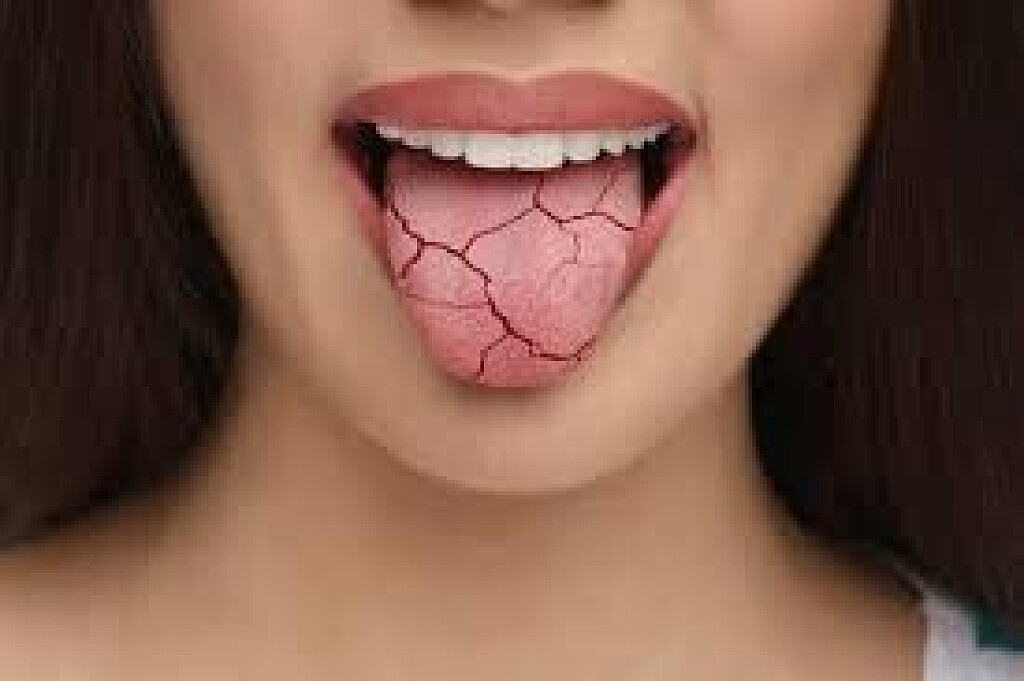
How to Solve Your Dry Mouth Problem
Anyone who has suffered from dry mouth will tell you it’s not a pleasant experience. It’s not a healthy experience as well. We frequently see patients with dry mouth issues. They often wonder why it occurs and what can be done about it.
Dry mouth can occur for many, varied reasons. They include:-Side effect of numerous medications for a variety of conditions and ailments-Side effect of certain diseases and infections-Side effect from medical treatments, such as radiation and chemotherapy-Nerve damage to head and neck from surgery or injury-Dehydration caused by illness-Poor lifestyle and diet that includes smoking and other tobacco products and caffeinated drinks-Breathing through your mouth instead of your nose
Dry mouth symptoms are not hard to spot because you feel as if you’re in a desert with nothing to drink. Basically, you’re not producing enough saliva to keep your mouth wet. But the symptoms go beyond the obvious dry mouth and throat and constant thirst. Additional symptoms that can develop are:-Mouth sores and cracked lips-A burning sensation in the mouth, especially the tongue-A dry, red, raw tongue-Speaking, tasting, chewing and swallowing issues-Hoarseness, dry nasal passages, sore throat-bad breath
As you can see, health issues related to dry mouth can be many. But equally problematic, these issues can have an adverse impact on your dental health. Dry mouth can raise the risk of gum disease, tooth decay and mouth infections, such as thrush.
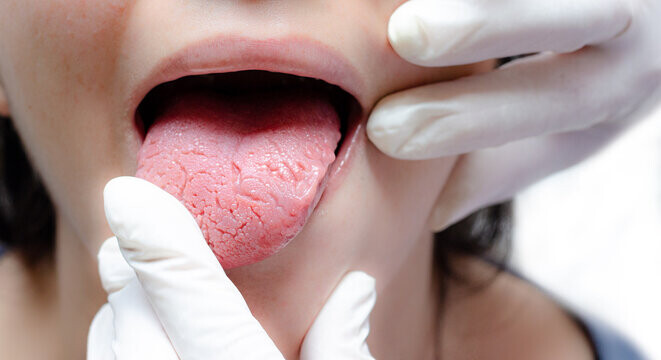
There are some fundamental things you can do to lessen the problem or perhaps cure it completely. They include:-Suck on sugar-free candy or chew sugar-free gum-Drink plenty of water throughout the day and evening-Quit drinking caffeinated beverages-Decrease consumption of alcoholic beverages-Stop smoking and using other tobacco products-Breath through your nose, not your mouth-Use a vaporizer in your bedroom to moisten the air
If your problem persists, we can develop a program to help you. For instance, we might try in-office fluoride treatments and prescribe antibacterial/antifungal mouth rinses. We also would do more frequent x-rays to check for deep tooth, root or gum issues. In general, as long as your dry mouth condition continues, it’s a good idea to visit us every six months until we can correct the problem.
(07/20/2024)by Jaime O’Neill DDS
More Information: http://jaimeoneilldentistry.com/how-to-solve-your-dry-mouth-problem/
Views: 385

Nine Most Common Mouth Issues in Adults and Children
Did you know that most mouth issues happen because people aren’t brushing, flossing, and visiting the dentist? The truth is that healthy behaviors can improve a person’s oral health, but not knowing what is necessary or not having access to the right resources can make that impossible.
Even so, there are still individuals that do have access to resources and still have poor oral health. When someone starts to get one dental issue, it usually snowballs to create more issues. For instance, if you have tooth erosion, you likely also have various stages of tooth decay, gum disease, and/or bad breath.
Knowing what causes some of the more common mouth infections and general concerns will help with prevention.
Keep reading to find out about the top 9 mouth problems that may require a trip to the dentist.
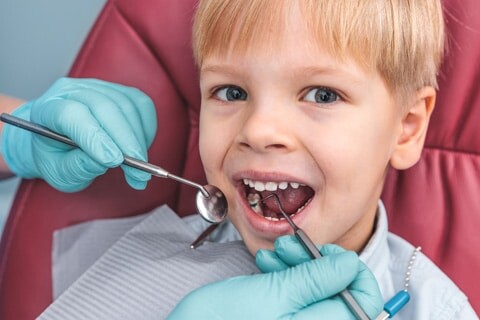
1. Tooth Decay
Tooth decay is a serious problem around the world for both adults and children. In fact, it’s the second most common health problem in the US after the common cold.
Most notably showcased as a cavity, tooth decay happens when plaque on your teeth mixes with sugar and starch from foods that you eat. This produces specific acids that are harmful to your tooth enamel.
No matter how old you are, you are susceptible to cavities. Poor dental hygiene, gaining, and dry mouth are all things that can contribute to tooth decay.
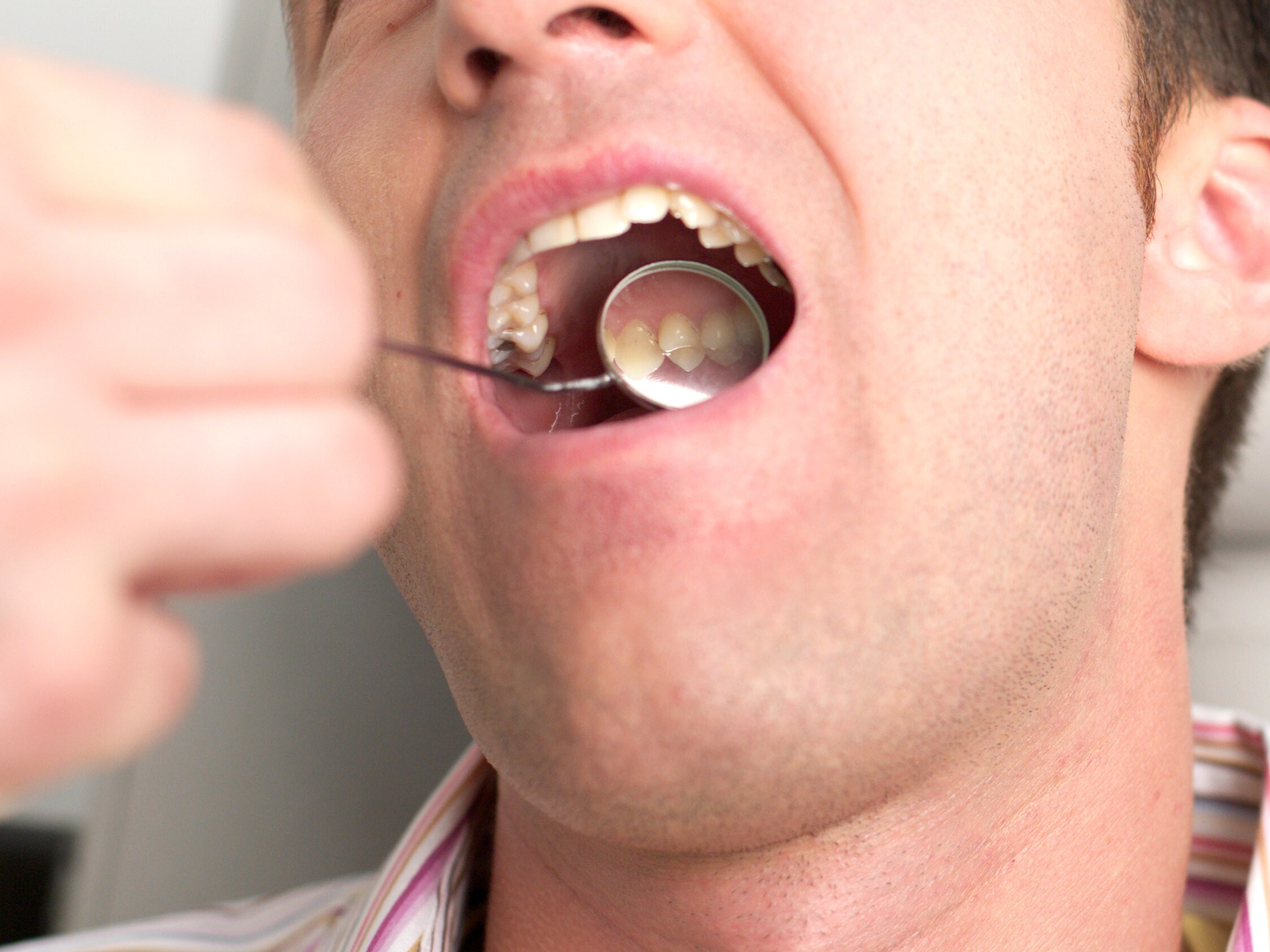
2. Gum Disease
Also called periodontal disease, gum disease is a type of infection in a person’s gums.
It can end up leading to tooth loss if it doesn’t get treated. Just like tooth decay, anyone can get gum disease. However, it is more common in people over the age of 30 and in smokers.
Symptoms of gum disease include things like pain while chewing, red or swollen gums, and sensitive teeth.
To avoid gum disease, you’ll want to practice good dental hygiene and get regular dental cleanings and check-ups.
3. Bad Breath
A lot of underlying dental conditions can end up leading to bad breath, also called halitosis, but it still can be an embarrassment for plenty of people that have to deal with it.
Some of the reasons that a person might have bad breath include:
Tongue bacteria
Cavities
Gum disease
Dry mouth
Mouthwash can help with bad breath, but if the person doesn’t get to the root of the problem, this is only a temporary fix. Talk to your dentist if you’re dealing with bad breath to see if you can find a more permanent solution.
4. Tooth Sensitivity
Another common issue is tooth sensitivity, which can be a sign of other dental concerns. Generally, people will notice the sensitivity when they have hot, cold, or sweet drinks and food.
When you have sensitive teeth, you might find that brushing or flossing your teeth is painful. This can lead to poor dental hygiene and more dental problems later on.
If you’re dealing with sensitive teeth, your dentist has treatments available that can help you before it gets worse.
5. Sores or Blisters
There are a lot of different types of mouth sores out there, and generally, they are nothing to worry about. Most will clear on their own within a week or two.
You might have canker sores, fever blisters, or thrush if you’re dealing with a common mouth sore. These are caused by different things, so talking to your dentist about what triggered or caused the sore(s) to come up can help prevent future sores.
Remember that fever blisters (cold sores) are actually contagious, so make sure to keep this in mind if you think that you might have this type of mouth sore.
6. Tooth Erosion
When your teeth lose the structure they need, they will start to erode. This is what will happen after tooth decay isn’t treated and acids continue to attack the tooth enamel.
Someone that is dealing with tooth erosion can feel sensitivity, pain, or even cracked teeth. The symptoms will vary based on the severity of the erosion.
If you have tooth erosion that led to teeth extraction, you may need dental implants. In addition to that, your health team may recommend jaw surgery to get your bite and tooth wear back on track. You can visit korbtaylor.com to get more information on what options you may have.
7. Imperfect Smile
While this isn’t necessary a dental concern in terms of medical necessity, it is a huge reason that people find themselves seeking dental treatment. People that don’t like their smile can struggle with embarrassment, low self-esteem, and even sadness.
The good news is that people that have a smile they don’t love can often talk to their dentist about treatment options. There are a variety of ways that dental health professionals can alter a smile, including:
Braces
Aligners
Teeth whitening
Implants
8. Tooth Pain
When you have sudden tooth pain, you might be a little bit freaked out. In some cases, this pain may be so intense that you need urgent treatment (just like in any other emergency).
If you notice that your tooth has cracked, abscessed, or fallen out, it’s important to make an immediate trip to the dentist. They will have someone on call during weekends or evening hours to handle emergencies, so don’t hesitate to call right away.
You might have tooth pain that comes and goes, so it doesn’t seem like an emergency. In most cases, you’re likely right. However, you still want to make an appointment with your dentist since it could be a cavity, nerve issue, or other dental concern that requires treatment.
9. Oral Cancer
Did you know that someone in the US dies of oral cancer each hour? It’s a serious and fatal disease that impacts millions of people, but it is often curable if caught in the early stages.
Regular dental visits are a great way to ensure that oral cancer is caught early, but always make sure that your dentist does an oral cancer exam as part of their check-up.
Symptoms to be aware of include:
Lumps
Sores
Rough parts of the mouth
Difficulty moving the tongue
Problems biting down
Recognize the Common Mouth Issues Out There
The key thing to remember with many mouth issues is that a dentist can help. Whenever you notice something that doesn’t seem right, give the professionals a call so that they can help you.
Always brush your teeth twice per day, floss at least once per day, and see your dentist every 6 months or so.
(07/22/2024)by Finding Farina
More Information: https://findingfarina.com/9-most-common-mouth-issues-in-adults-and-children/
Views: 408

Why Is Gum And Tongue Health Just As Important As Teeth Health?
Oral health is an essential aspect of overall health and well-being. While many people focus on their teeth when it comes to oral health, there are other important aspects to consider as well. Gum and tongue health are just as crucial as teeth health, and neglecting them can have serious consequences for both oral and overall health.
In this article, we will explore why gum and tongue health is just as important as teeth health. We will discuss the role of gums and tongue in oral health, the consequences of neglecting them, and practical tips for maintaining healthy gums and tongue.
The Role of Gums and Tongue in Oral Health
The gums and tongue are crucial components of the oral cavity. They play an essential role in maintaining healthy teeth and preventing oral diseases. Here are some of the roles of gums and tongue in oral health:
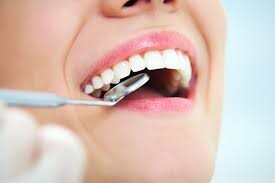
Gums protect teeth roots: The gums protect the roots of teeth from harmful bacteria and other substances that can cause decay and gum disease. Healthy gums create a tight seal around the teeth, preventing bacteria from entering the root canal.
Gums provide nutrients to teeth: The gums supply nutrients and oxygen to the teeth through blood vessels. This helps to maintain the health and strength of the teeth.
Tongue cleanses the mouth: The tongue is covered in tiny bumps called papillae, which help to clean the mouth by removing food particles and bacteria. It also helps to distribute saliva, which is essential for maintaining healthy teeth and gums.
Tongue aids in speech and taste: The tongue plays a crucial role in speech and taste. It helps us to form words and distinguish different tastes.

The Consequences of Neglecting Gum and Tongue Health
Neglecting gum and tongue health can have serious consequences for both oral and overall health. Here are some of the consequences of neglecting gum and tongue health:
Gum Disease
Gum disease is a common oral health problem caused by bacteria in the mouth. Neglecting gum health can cause gingivitis, a mild form of gum disease that causes inflammation and bleeding of the gums.
If left untreated, gingivitis can progress to periodontitis, a severe form of gum disease that can cause tooth loss and bone damage.
Tooth Decay
Neglecting gum health can also increase the risk of tooth decay. When bacteria in the mouth are not kept in check, they can produce acids that erode tooth enamel, leading to cavities.
Halitosis
Neglecting tongue health can cause halitosis, or bad breath. The tongue can harbor bacteria and food particles that can cause an unpleasant odor.
Difficulty Eating and Speaking
Neglecting tongue health can also cause difficulty eating and speaking. A buildup of bacteria and food particles on the tongue can make it difficult to form words and chew food properly.
Practical Tips for Maintaining Healthy Gums and Tongue
Maintaining healthy gums and tongue is crucial for oral and overall health. Here are some practical tips for maintaining healthy gums and tongue:
Brush and Floss Regularly: Brushing and flossing regularly are essential for maintaining healthy gums and teeth. Brush your teeth at least twice a day for two minutes each time. Use a soft-bristled brush and fluoride toothpaste. Floss at least once a day to remove food particles and plaque from between teeth.
Use Mouthwash: Mouthwash can help to kill bacteria in the mouth and freshen breath. Look for a mouthwash that contains fluoride and antiseptic properties.
Clean Your Tongue: Use a tongue scraper or soft-bristled brush to clean your tongue daily. Gently scrape or brush your tongue from back to front to remove bacteria and food particles.
Quit Smoking: Smoking is a significant risk factor for gum disease and tooth decay. If you smoke, make an effort to quit to improve your oral health.
Visit the Dentist Regularly: Visit your dentist every six months for a check-up and professional cleaning. This will help to keep your gums and teeth healthy and catch any problems early.
Your Teeth And Gums Reveal A Lot About Your General Health
Your mouth is full of bacteria, most of which are not harmful, just like the rest of your body. But, your mouth is the gateway to the rest of your body, including your digestive and respiratory systems, and certain bacteria in your mouth have the potential to cause disease.
In a normal situation, bacteria are kept under control by the body’s natural defenses as well as by proper oral health care, such as brushing and flossing the teeth on a daily basis. Yet if you don’t practice good dental hygiene, bacteria in your mouth can build up to dangerous levels, which can result in oral infections including tooth decay and gum disease.
In addition, the production of saliva can be inhibited by the use of several pharmaceuticals, including decongestants, antihistamines, opioids, diuretics, and antidepressants.
The food particles are washed away by saliva, and the acids that are created by bacteria in the mouth are neutralized by saliva, which helps to protect you from the microorganisms that can multiply and cause disease.
According to a number of studies, oral bacteria and the inflammation caused by an advanced type of gum disease known as periodontitis may both have a role in the development of certain diseases.
In addition, some conditions, like diabetes and HIV/AIDS, can weaken the body’s resistance to infection, which can make oral health problems even more severe.
Which Conditions Are Associated With Oral Health?
The knowledge of taking care of your oral health has been passed down to us for many years. There are a lot of conditions where oral health plays a role in the overall wellbeing of your body. Some of these conditions include:
Diabetes – People with diabetes are more prone to gum disease and tooth decay due to their weak immune system.
Heart Disease – Poor oral hygiene increases the risk of periodontal disease and can lead to an increased risk for heart diseases.
Kidney Disease – Poor oral hygiene increases the risk of infection in your mouth and can cause buildup of bacteria which may lead to kidney failure.
Pregnancy Complications – Poor oral health during pregnancy can increase the risks for preterm birth and low birth weight.
(07/19/2024)by River District Smiles
More Information: https://riverdistrictsmiles.com/why-is-gum-and-tongue-health-just-as-important-as-teeth-health/
Views: 329

How To Prevent Tooth Decay And Gum Disease
In addition to giving one confidence, a healthy smile is a sign of general well-being. Maintaining optimal oral health requires preventing gum disease and tooth decay. These frequent dental problems may cause pain, result in tooth loss, or even hurt your general health. We’ll examine the causes of gum disease and tooth decay in this thorough guide, along with practical advice on how to avoid these issues with oral health.
UNDERSTANDING TOOTH DECAY AND GUM DISEASE
TOOTH DECAY (CARIES):
When plaque, a sticky layer of bacteria, accumulates on teeth, tooth decay results. By consuming the sugars and starches found in food and drink, the bacteria in plaque produce acids that erode enamel and result in cavities.
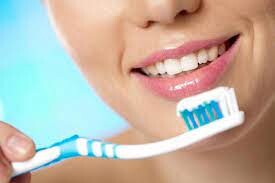
GUM DISEASE (GINGIVITIS AND PERIODONTITIS):
Gum disease begins with plaque buildup, leading to gingivitis (inflamed gums). Left untreated, it can progress to periodontitis where the gums pull away from the teeth, pockets form, and bone loss occurs.
PREVENTING TOOTH DECAY
Oral hygiene: Plaque can be removed and cavities can be decreased by brushing and flossing twice a day. For further protection, use a toothpaste containing fluoride.
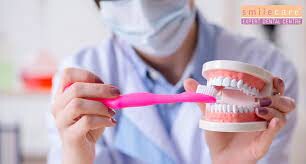
Dietary Habits: Steer clear of sugary, starchy foods and drinks, and cut back on between-meal snacking. Have some water instead.
Fluoride: Fluoride fortifies tooth enamel, increasing its resistance to decay. Obtain fluoride by using mouthwash, toothpaste, and drinking water.
Frequent dental check-ups: Your dentist can find cavities early on and treat them before they get worse. Dangerous plaque deposits are also removed by expert cleanings with Columbia General Dentistry.
Dental sealants: These plastic coatings are placed on the back teeth chewing surfaces, to stop cavities from forming in the grooves and pits.
PREVENTING GUM DISEASE
Good Dental Hygiene: The plaque that causes gingivitis is eliminated by thorough brushing and flossing. Observe the spaces beneath and surrounding the gums.
Flossing: Floss once a day to get rid of plaque that your brush can’t reach between teeth. It reduces inflammation of the gums.
Frequent Dental Check-Ups: During examinations and cleanings, dentists and hygienists search for the earliest indications of gum disease. If treatment is required, they can offer it.
Healthy Lifestyle Options: You can improve your dental and general health by avoiding tobacco use, controlling stress, eating a balanced diet, and exercising.
Stress management: Long-term stress impairs immunity, increasing the risk of gum disease.
Periodontal Maintenance: To avoid reinfection, follow gum disease therapy with special deep cleanings that eliminate bacteria overlooked by routine cleanings.
ADDITIONAL TIPS FOR ORAL HEALTH
Avoid Tobacco: If possible give up smoking and chewing tobacco as they raise your risk of gum disease.
Limit Alcohol: Drinking too much alcohol increases the risk of gum disease. Drink only in moderation.
Stay Hydrated: Avoiding dry mouth throughout the day by drinking lots of water reduces the chance of decay.
Mouthwash: Fluoride-infused antiseptic rinses build enamel, eradicate bacteria, and improve breath.
Chew Sugar-Free Gum: Chewing gum causes saliva to flow more freely, which helps to neutralize acids and wash away food particles.
(07/20/2024)by New Columbia Dentistry
More Information: https://newcolumbiadentistry.com/blog/how-to-prevent-tooth-decay-and-gum-disease/
Views: 366
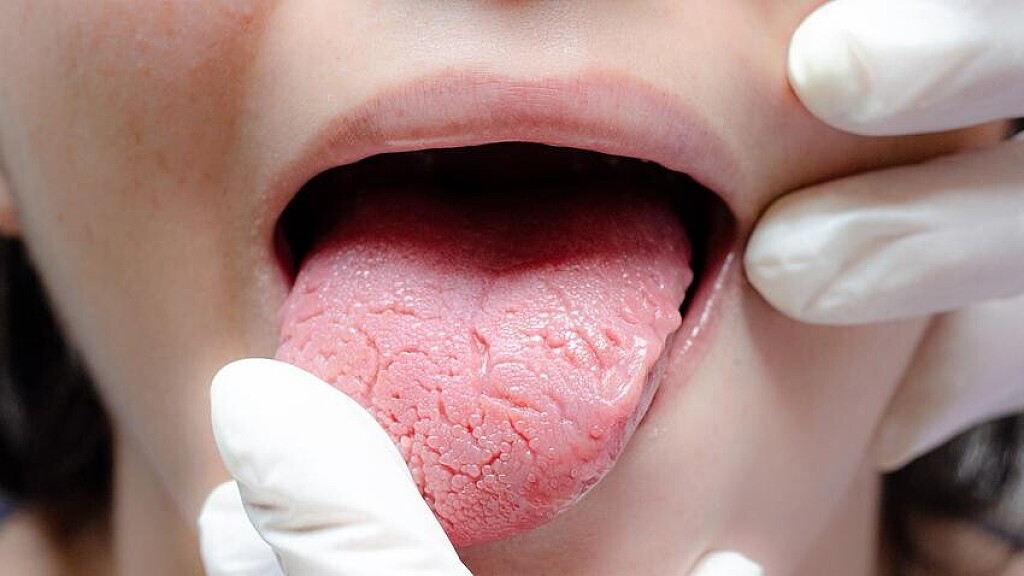
Five Common Tongue Problems
Normally when you think of oral hygiene, you think about taking care of your teeth and gums. However, as WebMD explains, your tongue is an extremely important part of your body. It allows us to taste foods, chew and swallow them, and it helps us to speak.
When healthy, the tongue is pink, covered in small nodules that are called papillae. In between the papillae are your taste buds. Because the tongue is so crucial, and because you’re using it all day long, when it develops a problem, it can be very uncomfortable.
Tongue problems can include pain and discoloration, but fortunately, most of the common tongue symptoms aren’t serious and they might even go away on their own.
Here are 5 common tongue problems, their possible causes and typical treatments.
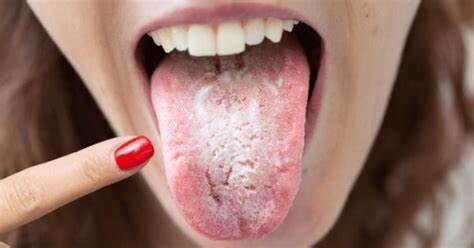
White Coating on Tongue – There are several conditions that can cause patches of white areas to appear, including oral thrush, oral lichen planus and leukoplakia. Oral thrush, otherwise known as candidiasis (candida), is a common yeast infection that, inside your mouth, can resemble cottage cheese on your tongue. This is very common for infants and elderly people, in addition to those with weakened immune systems. Others who are susceptible include diabetes sufferers and people who take inhaled steroids for lung disease or asthma. Oral thrush can also occur after taking antibiotics, which can also attack the healthy bacteria that lives in your mouth. Therefore, one treatment is to eat plain yogurt with active cultures or take a probiotic supplement to restore your mouth’s natural flora. Your doctor might also prescribe medications to fight the infection.
Redness on Tongue – There are several factors that may cause this, and in certain cases, your tongue might even begin to look like a strawberry, since taste buds can turn red and become enlarged. A deficiency in vitamin B12 and folic acid may be the culprit. If this condition is accompanied by a high fever, it may be scarlet fever. If you have a red tongue and a high fever, see your doctor immediately! You might also have a geographic tongue, which is so-named because it looks like a map of red spots. This is likely harmless, but see your dentist if they last for more than 2 weeks. No treatment is necessary, but they might prescribe a topical medication to relieve any pain or discomfort.
Sore or Bumpy Tongue – Many things can cause your tongue to become painful or bumpy, including accidentally biting it or burning it with hot liquid, canker sores, smoking, burning tongue syndrome (in postmenopausal women), enlarged papillae or some medical conditions like anemia or diabetes. In rarer instances, it could be a sign of oral cancer, so you should always see a doctor if it doesn’t go away in 1 to 2 weeks.
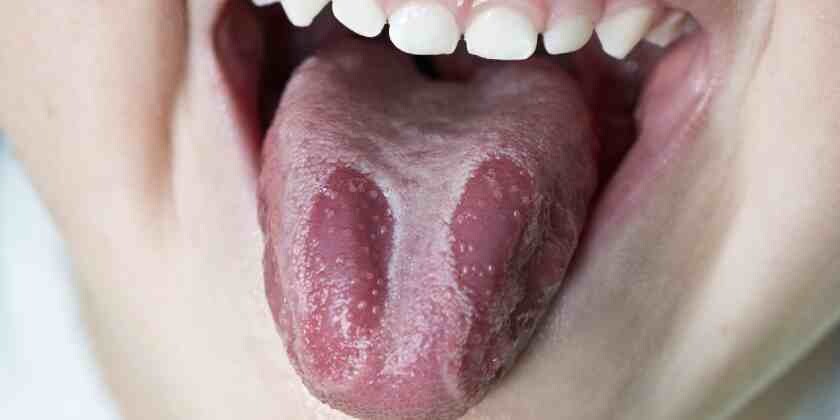
Tongue Swelling – The New York Times health guide mentions other common tongue problems, including tongue swelling. This can occur with various hormonal conditions and medical disorders, but it can also be an allergic reaction or a side effect of certain medications. An enlarged tongue might also be due to a strep infection, so if you have a swollen tongue, it is wise to alert your doctor.
Taste Problems – Your tongue can sense salty, sweet, sour and bitter tastes, and sometimes, you might experience a loss of taste. This will frequently happen if you are sick and are suffering from some type of infection. Other causes can include damage to the taste buds, nerve problems or a medicine’s side effect. If this persists for longer than a week, consult your doctor.
(07/22/2024)by Dentalux
More Information: https://dentaluxpa.com/5-common-tongue-problems/
Views: 416

Mouth Issues That Can Scare You Stiff
You want to keep your teeth shining bright, white, and clean. But that takes more than just an occasional brushing with toothpaste- it sometimes includes changing up (or improving) your brushing technique; ditching the daily coffee and soda habit; and obviously saying goodbye to the cigarettes. Failure to take care of your teeth can result in some pretty nasty results. Here’s a look at seven mouth issues that can scare even the bravest of dentists away…
Blood Blisters in Mouth
Blood Blisters in the mouth are not caused by lack of brushing or flossing, but rather by direct trauma to the oral cavity. For example, if your dentist gives you a local anesthetic injection before a procedure, afterwards you may notice a blood blister has formed where the needle had entered your body.
Usually you do not need any type of medical intervention for oral blood blisters, as they go away on their own within a couple weeks time. However, you should contact your doctor or dentist if you see any sort of infection forming in, or around, the blister.

Lichen Planus
According to the Mayo Clinic, Lichen Planus is a condition that can cause swelling and irritation in the skin, hair, nails, and mucous membranes. The inside of your mouth and gastrointestinal tract is covered in a mucous membrane. When Lichen Planus attacks the inside of the mouth, it forms white, lacy patches and sometimes painful sores on the mucous membrane.
It has been discovered that Lichen Planus is caused when your immune system attacks the cells of the mucous membrane. It is therefore important to see your dentist every six months to evaluate these areas should Lichen Planus be present. Lichen Planus is quite annoying to the person it affects – those who suffer range from being completely asymptomatic to having burning/ulcerated patches in their mouth. Although it’s not contagious, you should see your doctor if you start to notice those white, lacy patches on the inside of your mouth.
Aphthous Ulcers

Canker sores, or Aphthous Ulcers, are small, shallow lesions on the inside of your mouth (on the soft tissue) or at the base of your gums. Although these sores are little, they bring mighty pain and discomfort to their host– they can even interfere with properly eating or speaking!
Unlike cold sores, Aphthous Ulcers are not contagious, nor are they caused by the same thing. Similar to cold sores, canker sores (usually) go away on their own after a week or two. However, if you have a canker sore that is unusually large, painful, or sticks around for longer than two weeks, you should consult a doctor or dentist.
Females tend to get canker sores more often, but we are all susceptible to getting one. Stress is a major causing factor when it comes to canker sores.
Oral Thrush
One of the most unpleasant mouth afflictions you can get is oral candidiasis, or Oral Thrush. Candida is an organism that normally lives in your mouth. However, when you have a compromised immune system mixed with bad oral hygiene, the Candida can accumulate on the oral lining as a fungal infection, resulting in creamy, white, lesions on the inside of your mouth and tongue.
Usually this only affects immuno-compromised populations, such as babies, the elderly, and people with autoimmune diseases. The white patches can be wiped off, but if you notice symptoms of Oral Thrush, you should contact your doctor or dentist.
Black Hairy Tongue
Another awful mouth issue that can arise from lack of regularly brushing (i.e. brushing at least two times a day), is a condition called Black Hairy Tongue. This temporary ailment is aptly named because the papillae on the tongue grow longer than normal and can become stained by everyday food, bacteria, and other substances. The bacterial build up on the papillae results in a dark brownish-black, furry-like appearance on the tongue.
Without a doubt, Black Hairy Tongue is one of the most unattractive mouth maladies one can have. However, it can easily be avoided (or treated) by brushing your teeth- and tongue- with toothpaste. Within a few days of regular brushing, Black Hairy Tongue usually starts to go away on its own. Of course, if the problem persists, you should go see your doctor.
Amalgam Tattoos
If you have noticed a blueish-gray stain on the gums around a tooth filling you have, then you may have an Amalgam Tattoo. These painless and harmless oral “tattoos” are nothing to be afraid of. They are actually caused by the metal known as dental amalgam that is used in tooth fillings. If during the filling process, any of the dental amalgam spills over onto the gums, it can leave a painless, but permanent, bluish-gray stain. Unfortunately, you cannot get rid of an Amalgam Tattoo– but that should not deter you from a continued proper brushing and flossing schedule.
Leukoplakia
Part of having good oral hygiene includes not using tobacco products, like cigarettes, chewing tobacco, dip, and even vaping. Chronic use of tobacco products can result in thickened, textured, white patches forming on your gums, on the inside of your cheeks, on the bottom of your mouth, and sometimes on your tongue. This unsightly build-up is known as Leukoplakia, and these white patches cannot be wiped out.
Most cases of Leukoplakia are benign (noncancerous). However, in some cases Leukoplakia has actually been an early warning sign of a serious condition. Even if you brush your teeth and floss, that may not be enough– especially if you have a long-standing relationship with tobacco products.
If you start to see these thick, textured patterns on the inside of your mouth, you should always go see a doctor. Not only could it be a sign of Leukoplakia, but it may be your body alerting you of a more serious condition.
Keep Your Mouth in Tip-Top Shape
For the entirety of your life, you will only have one mouth– so it is important that you take extra good care of it! That means regularly brushing your teeth, flossing your teeth, brushing your tongue and the insides of your mouth, and laying off dark, staining drinks, and harmful tobacco products. It may seem like a lot, but a shiny, bright smile is much more pleasant than a mouthful of gross infections.
If you have any concerns about your oral hygiene, or just need your six month checkup, contact DeJesus Dental Group. At DeJesus Dental Group, we have carefully selected a highly trained team of dental care professionals. Our team loves what they do, and not only will they help you receive fast, accurate dental care, but they will also help you feel relaxed and welcome.
(07/21/2024)by DeJesus Dental Group
More Information: N
Views: 384
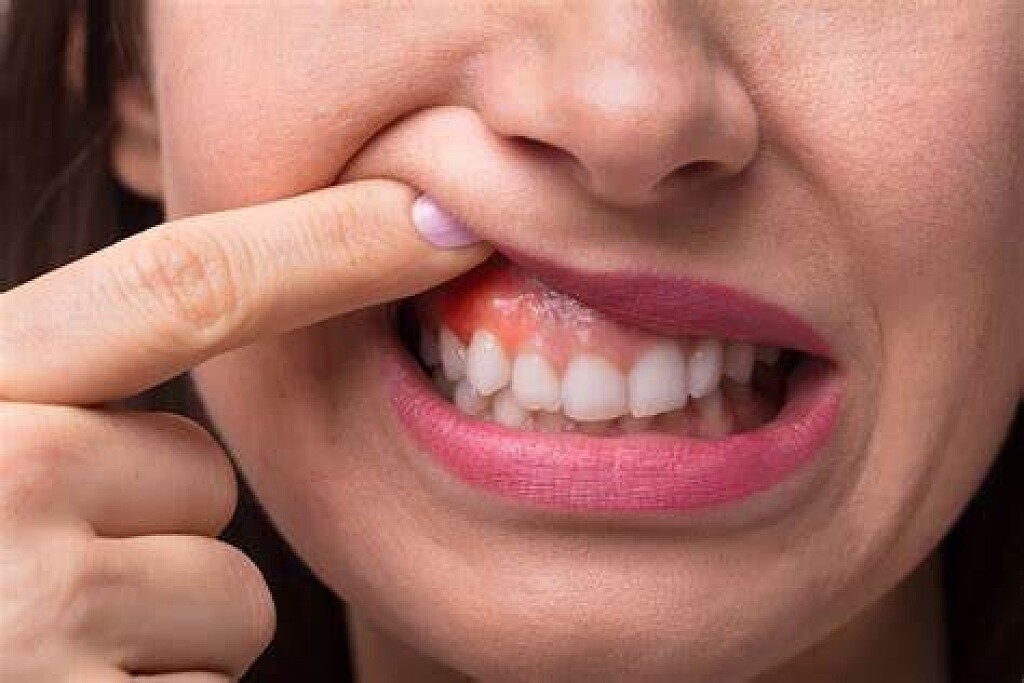
What can cause gum pain?
The gums are soft, fleshy tissue that support and protect the teeth. Pain in gums can be a sign of irritation, infection, or injury to the gums and teeth.
Gum pain can often be a temporary symptom, but other times a person may require dental treatment to prevent further health complications.
In this article, we discuss some of the possible causes of gum pain. We also cover treatment, home remedies, prevention of gum pain, and when to see a dentist.
Causes
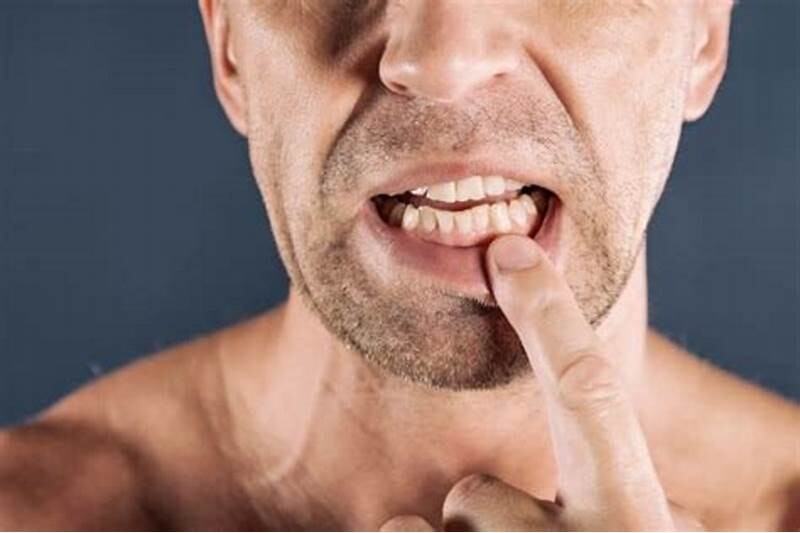
Gum pain can range from a minor irritation to severe and debilitating. Some potential causes of gum pain include:
Canker sores: These are small, painful ulcers that can occur on the gums. Causes of canker sores can include emotional stress, mouth injuries, an impaired immune system, or other underlying health conditions.
Cuts or injuries: Food and objects that enter the mouth can sometimes cause minor cuts or injuries to the gums and teeth. A person may also accidentally bite down on the gums, which can sometimes cause pain and bleeding.
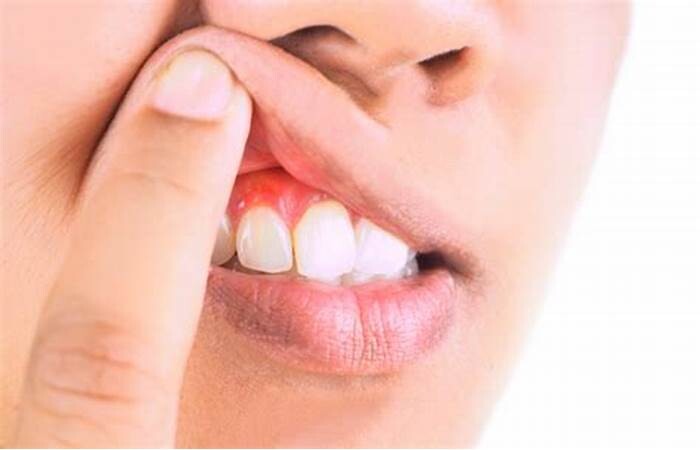
Gum disease: Also known as gingivitis, this condition occurs when bacteria build up under the gums and cause inflammation and bleeding. Without treatment, gingivitis can develop into periodontitis and lead to loose teeth. People who smoke are at a higher risk for gum disease than nonsmokers.
Hormonal changes: Hormonal fluctuations, especially during pregnancy, can cause a person to experience swelling, pain, and bleeding in the gums.
Improper flossing or brushing techniques: Brushing or flossing too vigorously or frequently can sometimes cause the gums to bleed and be painful.
Sinusitis: A bacterial or viral infection in the sinuses can cause swelling of the sinus cavity. Some people with sinusitis also experience gum pain and toothache.
Tooth abscess: A bacterial infection in the root of a tooth can cause an abscess or pus-filled sac. Tooth abscesses can lead to gum swelling and pain. They can also be serious and spread to other parts of the body, so it is essential to see a dentist quickly.
Treatment
Treatment for gum pain depends upon the underlying cause.
For people with gum disease, for example, a dentist may recommend professional cleaning to remove plaque and tartar from the gums. They may also prescribe an antibacterial mouthwash, such as one containing alcohol or chlorhexidine, to kill excess bacteria and prevent the future build up of plaque.
If a person has severe gum disease, a dentist may recommend surgery to repair bone or gum loss that the condition has caused. Sometimes, this can include bone and tissue grafting to encourage the growth of new, healthy tissue.
People with tooth abscesses may require root canal treatment. During this procedure, a dentist will remove the infected pulp, or soft tissue inside the tooth, and the abscess from the root and then repair and seal the damaged tooth.
Gum pain due to sinusitis usually lessens once the infection clears up. For bacterial infections, a doctor may prescribe antibiotics.
Home remedies
People with gum pain that they cannot explain should see their dentist for a checkup. However, some simple home remedies may help relieve the discomfort. These include:
Gargling salt water. A person can prepare a gargle by mixing 1 teaspoon of salt with 8 ounces of warm water.
Clove oil. Applying clove oil to gums can reduce pain and swelling.
Pain medication. Over-the-counter pain relievers, such as ibuprofen or acetaminophen, can help to reduce gum pain.
Brushing carefully. Brush sore, swollen, or bleeding areas of the gums gently.
Avoiding foods that can irritate or scratch the gums may also help while they are healing. Examples include:
acidic foods, such as citrus fruits and tomatoes
sharp or scratchy foods, such as chips, nuts, or pretzels
spicy foods, such as those containing chilis or other hot peppers
For people with canker sores, taking vitamin and mineral supplements, such as iron and vitamin B-12, may help reduce gum pain.
Prevention
Good oral hygiene can help prevent gum pain and other dental issues. This includes:
brushing teeth twice daily with a fluoride toothpaste for at least 2 minutes
flossing once daily
using a dental mouthwash daily
having regular checkups with a dentist, such as every 6 months
If a person stops smoking, this can also improve gum health. Smoking can reduce blood flow to the gums, which may impair healing and lead to discomfort.
When to see a dentist
It is advisable for people with severe, persistent, or recurring gum pain to see a dentist for a checkup.
A dentist can examine the gums, teeth, and mouth for signs of infection, tooth decay, and other dental issues.
A person may also want to consider seeing a dentist if the pain occurs alongside any of the following symptoms:
bad breath that does not improve with tooth brushing
bleeding gums
gums that are receding
loose teeth
pain when chewing
red gums
sensitive teeth
Summary
There are many possible causes of gum pain, including gum disease, infections, abscesses, and ulcers.
People with gum pain they cannot explain may wish to consider seeing a dentist for a checkup. Without treatment, some causes of gum pain can lead to tooth decay or tooth loss.
Home remedies for gum pain include applying clove oil to gums, rinsing the mouth with salt water, and avoiding irritating foods.
(07/23/2024)by Medical News Today
More Information: https://www.medicalnewstoday.com/articles/324356
Views: 448

Foods to Avoid for Teeth Staining - Expert Tips
A bright, dazzling smile can make a lasting impression and boost your confidence. From whitening toothpaste to teeth whitening strips, there are endless products on the market that promise to give you pearly whites. While these options can help remove surface stains, it's important to also consider the impact of what you eat on the color of your teeth.
You may be surprised to learn that there are certain foods that can stain your teeth over time, undoing the effects of regular brushing and whitening treatments. These foods, if consumed in excess, can cause discoloration and leave you longing for a radiant smile.
In this article, we will explore 10 common foods that you should avoid if you want to maintain a stain-free smile. By being mindful of what you eat and making smart choices, you can help preserve the whiteness of your teeth and avoid the need for frequent visits to the dentist or relying on whitening strips.
So, before you take that next bite, let's delve into the world of teeth-staining foods and discover how you can keep your smile bright and beautiful.

Coffee: A Common Culprit for Teeth Stains
Coffee has long been a popular beverage, enjoyed by millions for its rich aroma and stimulating effects. However, its dark hue can leave a lasting mark on our teeth. It is no secret that coffee is one of the main culprits when it comes to teeth stains. The deep pigments in coffee can easily penetrate the enamel and leave unsightly brown or yellow discoloration.
In conclusion, if you are a coffee lover, it is important to be aware of its potential to stain your teeth. While completely avoiding coffee may be a difficult task, taking preventive measures such as limiting consumption and maintaining good oral hygiene can go a long way in preserving the whiteness of your teeth. Remember, a healthy smile is not only aesthetically pleasing but also contributes to overall dental well-being.
Black Tea: A Dark Drink That Can Darken Your Teeth
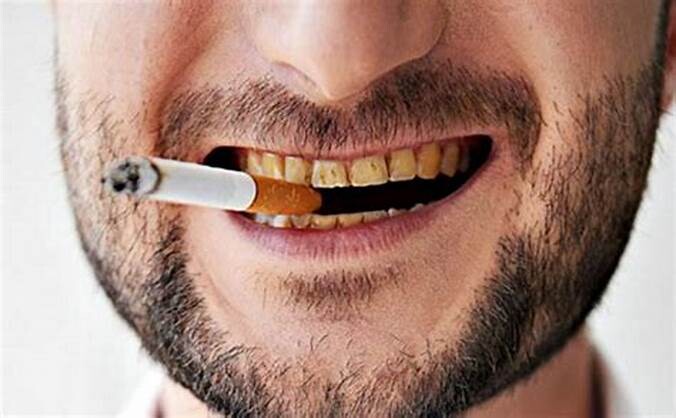
Black tea, the rich and robust beverage that many of us enjoy on a daily basis, may be causing more harm than good. While it provides a comforting and energizing experience, it can also lead to the darkening of your teeth. If you are an avid black tea drinker, you may have noticed a yellowish or brownish discoloration on your pearly whites. This is due to its high concentration of tannins, which are natural compounds that can easily adhere to teeth.
To minimize the staining effects of black tea, it's helpful to follow a few simple practices. One is to avoid sipping tea slowly and instead, drink it in a few continuous swallows. This reduces the exposure time for the tannins to interact with your teeth. Additionally, you can rinse your mouth with water after drinking tea to help wash away any residual particles. Regular brushing and flossing, along with routine dental cleanings, can also assist in keeping your teeth bright and healthy.
In conclusion, while black tea is a delicious and beloved drink, it's important to be aware of its potential to darken your teeth. Understanding the foods and beverages that may stain your teeth can help you make informed choices to maintain a radiant smile. By practicing moderation and implementing good oral hygiene habits, you can continue to indulge in your favorite cup of black tea while minimizing its impact on your dental aesthetics.
Red Wine: Sip with Caution to Keep Your Smile Bright
Red wine, with its rich color and complex flavors, is a favorite indulgence for many. However, before you reach for that glass, you may want to consider its impact on your pearly whites. Red wine, like many other dark-colored beverages, can stain your teeth over time, leaving you with a less than desirable smile.
The deep pigments in red wine, called chromogens, have a tendency to cling to the enamel of your teeth, leading to discoloration. While enjoying a glass or two occasionally may not cause significant staining, regular and excessive consumption can gradually darken your teeth.
To protect your smile, it is important to sip red wine in moderation and take precautions to minimize the staining effects. Along with maintaining a good oral hygiene routine, such as brushing and flossing daily, there are a few simple steps you can take. First, consider drinking through a straw to bypass direct contact with your teeth. Additionally, rinsing your mouth with water after enjoying a glass can help remove any residual wine.
In conclusion, while it's tempting to indulge in a glass of red wine, it's essential to be aware of its potential impact on your smile. Moderation, preventive measures, and avoiding other staining foods are key to maintaining teeth that dazzle. So go ahead and sip that red wine, but remember to prioritize the health and radiance of your teeth.
Berries: Delicious and Nutritious, but a Potential Teeth Stainer
Berries offer a tantalizing burst of flavors, making them the perfect treat for any time of the day. Besides being delicious, these tiny fruits are also a nutritional powerhouse, packed with vitamins, antioxidants, and fiber. However, as much as we love to indulge in their vibrant hues, it's essential to be aware that some berries can stain our teeth over time.
Foods to avoid that stain your teeth include blueberries, blackberries, and raspberries, all of which are notorious for leaving behind stubborn stains on our pearly whites. Their deep pigmentation can gradually seep into the enamel, leading to a duller and less vibrant smile. While this doesn't mean you need to give up enjoying berries altogether, it's important to take some precautions to keep your teeth looking their best.
In conclusion, while berries offer numerous health benefits, their vibrant colors can also pose a challenge to maintaining a bright smile. By being mindful of the foods that stain our teeth, such as certain berries, we can still enjoy their enticing flavors while taking steps to mitigate any potential staining. Remember to practice good oral hygiene, talk to your dentist about whitening options, and don't let the fear of stains keep you from savoring these delicious and nutritious fruits!
Tomato Sauce: Tasty but Treacherous for Teeth
Tomato sauce, a staple in many kitchens, is undeniably delicious. Whether it's smothered over a plate of spaghetti or used as a base for pizza, its tangy and savory flavor adds a delightful twist to any dish. However, while tomato sauce may be a culinary delight, it can also be treacherous for your teeth.
The vibrant red hue of tomato sauce comes from a pigment known as lycopene, which is notorious for staining teeth. Over time, consuming tomato sauce regularly can lead to unsightly discoloration and yellowing of teeth. The acidic nature of tomatoes can also weaken the enamel, making teeth more susceptible to tooth decay and cavities.
To minimize the negative impact of tomato sauce on your teeth, there are a few things you can do. First, try to limit your consumption of tomato sauce, especially if you're prone to teeth staining. Additionally, consider using a straw when enjoying tomato sauce-based beverages such as Bloody Marys, as it can help bypass direct contact with your teeth. Lastly, practicing good oral hygiene, such as brushing your teeth after consuming tomato sauce, can help reduce the chances of staining and enamel erosion.
In conclusion, tomato sauce is undoubtedly a tasty addition to many dishes, but its vibrant red color and acidic nature can pose risks to your teeth. To prevent staining and enamel erosion, limit your consumption of tomato sauce, use a straw when possible, and practice good oral hygiene. Remember, tomato sauce is just one of the many foods to avoid that stain your teeth, so be mindful of what you consume to maintain a radiant smile.
Soy Sauce: A Flavor Booster That Stains Teeth
Soy sauce, a savory condiment popular in many Asian cuisines, can add an explosion of flavor to your dishes. However, it's important to be aware of its potential side effect on your pearly whites. Soy sauce contains pigments called chromogens that have a tendency to stick to the enamel of your teeth, leaving behind a stubborn stain. If you're a fan of soy sauce and want to maintain a bright smile, it's crucial to take precautions and be mindful of foods to avoid that stain your teeth.
In conclusion, soy sauce is a delicious flavor enhancer that can unfortunately leave stains on your teeth, along with other pigmented foods and beverages. By being cautious about what you consume and maintaining proper oral hygiene, you can reduce the chances of staining and keep your smile bright and beautiful. Remember, moderation is key when it comes to enjoying foods that have the potential to stain your teeth. So, go ahead and savor that umami taste, but be mindful of the impact it can have on your pearly whites.
Balsamic Vinegar: Beware of This Dark Dressing
Balsamic vinegar, with its rich and dark color, has become a popular dressing for salads and a key ingredient in many recipes. However, while this tangy and flavorful condiment may enhance the taste of your favorite dishes, it could also be putting your pearly whites at risk. Yes, you read that right – balsamic vinegar is one of the foods to avoid that stain your teeth.
The dark pigment in balsamic vinegar is known to stick to tooth enamel, leading to unsightly stains over time. Despite its numerous health benefits and culinary uses, this acidic dressing can leave your teeth looking discolored and dull. So, if you're a fan of balsamic vinegar, beware of its potential impact on your smile.
In conclusion, while balsamic vinegar adds a unique taste to your culinary creations, it's essential to be mindful of its staining effects on your teeth. Remember to practice good oral hygiene, and consider alternative dressings if preserving the whiteness of your smile is a priority. By being proactive and vigilant, you can still enjoy the wonders of balsamic vinegar without compromising your dental aesthetics.
Cola and Soda: Fizzy Drinks, Fading Smiles
Cola and soda, the beloved fizzy drinks that bring joy and refreshment on a hot summer day. We all love the burst of carbonation and sweetness that tickles our taste buds, but have you ever thought about the impact they can have on your smile? Unfortunately, these fizzy drinks are major culprits in causing teeth stains and discoloration.
One of the main reasons cola and soda stain teeth is their high sugar content. Sugar not only erodes the enamel, but it also feeds the harmful bacteria in our mouths, leading to plaque and tooth decay. Additionally, both cola and soda are highly acidic, which further erodes the enamel and makes teeth more prone to staining. So, while enjoying these fizzy drinks in moderation may not cause significant harm, excessive consumption can lead to faded smiles.
In conclusion, while cola and soda may bring instant gratification to our taste buds, they can also take a toll on our teeth. Understanding the harmful effects of these fizzy drinks and being mindful of other stain-causing foods can go a long way in preserving our sparkling smiles. Remember, moderation is key, and maintaining good dental hygiene practices will help you enjoy your favorite fizzy drinks without compromising the beauty of your smile.
Dark Chocolate: A Bittersweet Treat That May Stain Your Teeth
Dark chocolate is a beloved treat for many, with its rich flavor and potential health benefits. However, indulging in this bittersweet delight may come with an unexpected consequence - stained teeth. While dark chocolate is often lauded for its antioxidant properties, it is important to be aware of the potential side effects it can have on your pearly whites.
The culprit behind dark chocolate's staining properties is its high content of tannins. Tannins are organic substances found in various foods and beverages, including red wine, coffee, and tea. These compounds can bind to the porous surface of tooth enamel, leading to discoloration over time. To maintain a bright smile while still enjoying your dark chocolate fix, it's important to be mindful of other foods to avoid that stain your teeth.
Ultimately, while dark chocolate may offer numerous health benefits, it's essential to understand that it can stain your teeth over time. By being aware of the foods to avoid that stain your teeth and adopting good oral hygiene practices, you can continue to enjoy your favorite treats without compromising the brightness of your smile. So, go ahead and savor that piece of dark chocolate, but remember to take steps to protect your teeth's natural brilliance.
Cigarettes: Avoid Smoking to Preserve Your Pearly Whites
Smoking cigarettes has long been known to have detrimental effects on our overall health. From increasing the risk of cancer to damaging our respiratory system, the negative impacts of smoking are well-documented. However, one aspect that is often overlooked is the effect smoking has on our teeth. If you want to preserve your pearly whites, it's crucial to avoid smoking.
Cigarettes contain nicotine and tar, both of which can cause severe staining on teeth. These substances can penetrate the enamel, leaving behind unsightly yellow or brown stains. Even regular brushing and professional cleanings may not be enough to remove these stubborn stains. Your smile is one of the first things people notice about you, so it's important to keep it bright and healthy.
Ultimately, the decision to quit smoking is a personal one, but considering the effects it has on our overall health, including our teeth, it's a choice worth making. By avoiding smoking and being mindful of the foods and beverages we consume, we can keep our teeth looking their best for years to come. So, let's choose to prioritize our oral health and say no to smoking, protecting our pearly whites and our smile.
(07/24/2024)by Laser Glow
More Information: https://www.laserglowspa.com/blogs/news/10-foods-to-avoid-for-teeth-staining-expert-tips
Views: 411

Salty Taste In Mouth: Causes, Symptoms And Treatment
Have you experienced salty taste in mouth without eating anything salty? You may wonder what is happening in your body. The abnormal taste in the mouth can make you feel uncomfortable. Though the sensation is strange, it is quite common. The salty taste is not a life-threatening condition. So, you need not worry too much about it. But, the taste can cause uneasiness in you. Therefore, read ahead to know the issue in detail. If the condition persists, see a doctor immediately. It will help you avoid further complications. Watch for other symptoms that point towards underlying diseases.
Common Causes Of Salty Taste In Mouth
As mentioned before, the salty taste in mouth is a very common condition. You can experience it due to various conditions. The most common causes for the problem are:
Dry Mouth

Dry mouth is one of the most common causes of salty in the mouth. Along with the taste, you also feel like having cotton balls stuffed in our mouth. The condition is medically termed as xerostomia. The reason for dry mouth ranges from using tobacco, medication side effects to aging.
Apart from the salty in the mouth, you can also experience other symptoms. Therefore, the dry mouth has other signs like:
Bad breath
A sore throat

Sticky feeling in your mouth
Stringy or thick saliva
Grooved tongue
Hoarseness
Another Cause Of Salty Taste In Mouth: Dehydration
The lack of electrolytes in the body can lead to dehydration. It happens when you lose the water content from your body. Severe vomiting, diarrhea, extreme heat or vigorous exercise can result in the dehydration.
Symptoms Of Dehydration Causing Salty Taste In Mouth
Dehydration can cause several issues in your body. So, it can also induce several signs like:
Dark Colored Urine
Extreme Thirst
Less Frequent Urination
Confusion
Fatigue
Dizziness
Oral Bleeding
Oral hygiene is an important factor in the occurrence of the abnormal taste in your mouth. One such problem is the oral bleeding. The metallic or salty taste is the indicator of the oral problem. The following reasons lead to the problem:
Eating foods with sharp edges (like chips)
Brushing gums aggressively using a toothbrush
Gingivitis
The regular bleeding of gums with the salty taste in mouth is the indication of the gum disease known as gingivitis. The common gum condition can lead to swollen or sore gum over the time. You may also experience tenderness in the gums. Another sign of gum problem is the unexplained bleeding. Therefore, you need to see a dentist to overcome the problem. Ignoring it can lead to infection, which can cause severe problems.
Oral Infection
Overlooking the gum infection can cause periodontitis. Not getting treatment for gingivitis is the main reason for the issue. You need to see the dentist at the starting stage of the disease. It will eliminate the serious risk of damage to bones as well as teeth.
Symptoms Of Periodontitis
When the gingivitis progresses to the periodontitis, it can lead to the following symptoms:
Loose teeth
Bad Breath
Pus under your teeth
Gum abscesses
Other Oral Infections
Oral Thrush
Salty taste in the mouth along with bleeding also signifies other underlying oral infection like thrush. Oral thrush is the common yeast infection that affects anyone. The main symptom of the problem is the white patches in the mouth. It can accompany with painful burning sensation. Many people experience salty taste. But, some may not taste anything.
Oral HPV
The oral human papillomavirus can cause infection in your mouth. You may not experience any symptoms in the starting stage of the disease. But, as the disease progresses, you can see signs like:
Salty taste
Hoarseness
Coughing Blood
Post-Nasal Drip
You may have sinus infection or allergies that can cause trouble. So, your doctor may prescribe post-nasal drip to clear the issue. It can cause salty taste in the mouth. Your nose forms mucus due to the infection or allergy. When you get sick, it can build at the back of the throat. The mucus mixes with your saliva and results in salty taste. It also causes a runny or stuffy nose that makes it difficult to breathe. Postnasal drip is an irritating condition as the excess mucus in your nose starts dripping down the throat. So, the presence of the mucus can turn the saliva salty.
Symptoms Of Postnasal Drip
The issue is quite common, so you may experience stuffy nose. You can also experience salty taste in the mouth. But, you need immediate medical attention to the following symptoms:
The nose block that lasts for more than ten days
Sinus Pain
Nasal discharge with blood in it
High fever
Green/Yellow nasal discharge
Clear nasal discharge
Salty Taste In Mouth Due To Bile/Acid Reflux
Bile reflux is a cause of severe discomfort in your body. It can cause a sour or salty taste in the mouth. The bile reflux and acid reflux can occur separately or together. The acid reflux is caused due to the stomach acids flowing into another organ, esophagus. While the bile reflux is the result of bile fluid flowing from the small intestine into esophagus and stomach.
Symptoms Of Acid/Bile Reflux
Along with the salty taste, you can also experience other symptoms like:
The issue is quite common, so you may experience stuffy nose. You can also experience salty taste in the mouth. But, you need immediate medical attention to the following symptoms:
The nose block that lasts for more than ten days
Sinus Pain
Nasal discharge with blood in it
High fever
Green/Yellow nasal discharge
Clear nasal discharge
Salty Taste In Mouth Due To Bile/Acid Reflux
Bile reflux is a cause of severe discomfort in your body. It can cause a sour or salty taste in the mouth. The bile reflux and acid reflux can occur separately or together. The acid reflux is caused due to the stomach acids flowing into another organ, esophagus. While the bile reflux is the result of bile fluid flowing from the small intestine into esophagus and stomach.
Symptoms Of Acid/Bile Reflux
Along with the salty taste, you can also experience other symptoms like:
Symptoms Of Salty Taste In Mouth Due To Nutritional Deficiency
Along with salty taste, you experience other symptoms like:
Irregular heartbeat
Fatigue
Personality Changes
Pallor
Numbness in hands as well as feet
Confusion
Another Cause For Salty Taste In Mouth: Sjögren Syndrome
It is the condition that results in the immune system attacking the moisture making glands. Hence, the glands in our body like tear ducts, salivary glands, and salivary gland gets affected. It causes dry eyes, dry mouth, and salty taste.
Symptoms Of Sjögren Syndrome
Fatigue
A dry Cough
Vaginal Dryness
Joint Pain
Skin Rashes
You may experience other autoimmune disorders like rheumatoid arthritis or lupus with the issue. Therefore, you need medical attention to get the desired treatment.
(07/25/2024)by Facty Health
More Information: N
Views: 410

